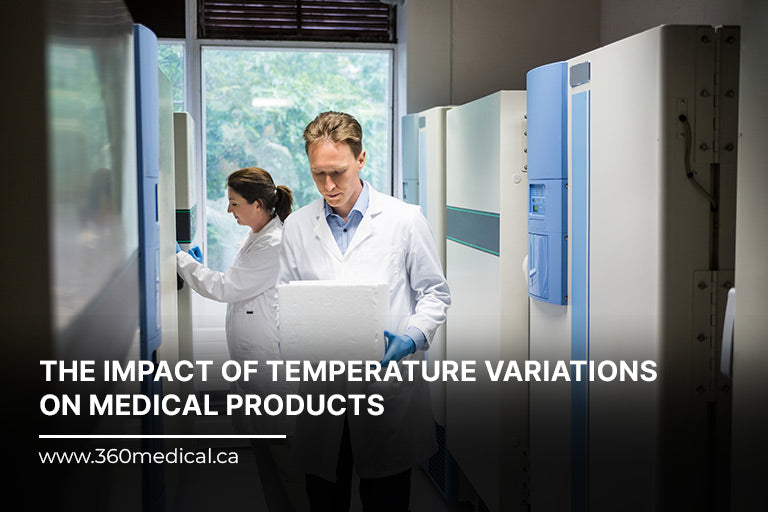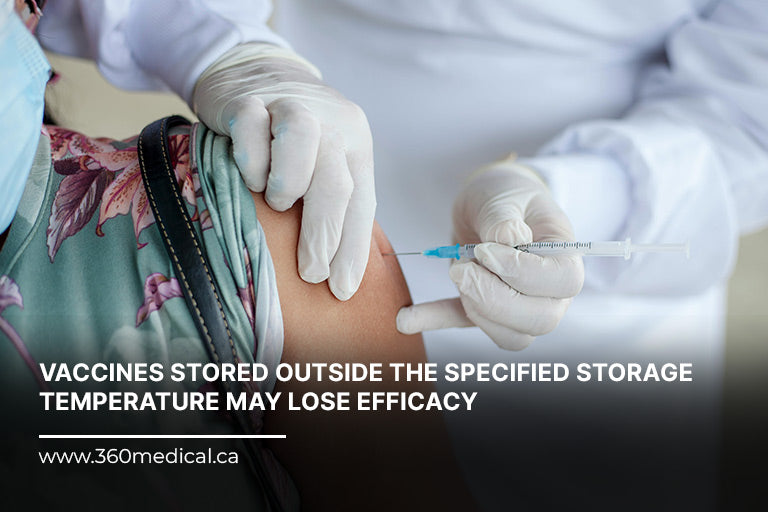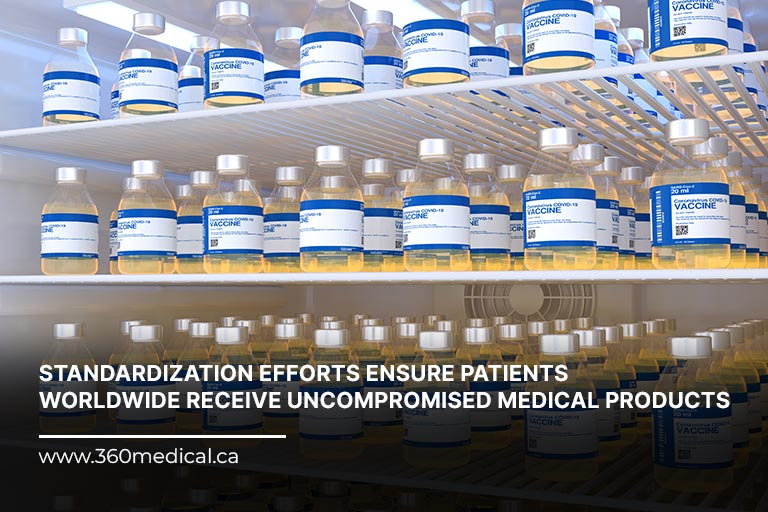The Impact of Temperature Variations on Medical Products

Temperature stands as a crucial factor in the efficacy of medical products, capable of either preserving or compromising the effectiveness of these essential life-saving tools. Beyond just compliance, comprehending the profound impact of temperature variations on medical products signifies a commitment to the well-being of the patients and the integrity of healthcare systems. This recognition emphasizes the strong connection between temperature and medical products, highlighting the critical need for adherence to good distribution practices of temperature-sensitive medical products. It transcends regulatory obligations, evolving into a responsibility to ensure that these vital healthcare components maintain their efficacy, safeguard patient health and sustain the reliability of healthcare systems. In navigating this delicate balance, healthcare professionals and stakeholders become upholders of patient safety, acknowledging temperature's profound role in medical products.
The Vital Role of Temperature Control
Maintaining a consistent temperature is paramount, whether it is vaccines, medications, or diagnostic reagents. The efficacy and safety of these essential medical products hinge on precise storage and transportation conditions. Any deviation from the recommended temperature ranges poses significant risks, rendering the products ineffective. Such lapses jeopardize patient safety and compromise the overall quality of healthcare delivery. Therefore, meticulous adherence to specified temperature controls is imperative to uphold the integrity and therapeutic value of these crucial healthcare components.
- The Vulnerability of Vaccines

Vaccines, the backbone of preventive medicine, are particularly susceptible to temperature fluctuations. Exposure to temperatures outside the recommended range can disrupt the delicate balance of vaccine ingredients. This vulnerability is a concern during transportation and extends to storage in healthcare facilities and pharmacies. Ensuring that handlers keep vaccines within specified temperature limits is crucial for safeguarding the potency of these immunization tools.
- Medication Integrity at Stake
Medications, ranging from antibiotics to complex biologics, also face challenges, especially concerning the storage temperature of drugs. The chemical composition of medications can degrade if exposed to extreme temperatures, rendering them less effective or even harmful. From manufacturing to distribution and storage, every step in the pharmaceutical supply chain must adhere to stringent temperature controls. The stakes are high, as compromised medications not only fail to provide therapeutic benefits but can also lead to adverse reactions.
- Diagnostic Reagents: Precision in Peril
In diagnostics, accuracy is non-negotiable, especially concerning diagnostic reagents used in laboratory tests to detect medical conditions. These reagents rely on exact chemical reactions for accuracy. Temperature fluctuations pose a threat, potentially modifying these reactions and resulting in inaccurate test outcomes. Such inaccuracies jeopardize patient diagnoses but also complicate disease management and treatment plans. To ensure the reliability of diagnostic tests, laboratories must establish and rigorously implement robust temperature management protocols, upholding the integrity of crucial medical assessments.
The Cold Chain Dilemma
The pharmaceutical industry grapples with the challenge of maintaining the cold chain—a seamless, temperature-controlled supply chain. From manufacturing facilities to distribution centers and pharmacies, each link in this chain must be equipped to handle the specific temperature requirements of the products. Modern technology, including temperature-monitoring devices and refrigeration systems, plays a pivotal role in ensuring the integrity of the cold chain. Embracing these advancements is a convenience and a necessity to meet the stringent demands of temperature-sensitive medical products.
Global Implications

There is no geographic restriction on how temperature variations impact medical products. In a globalized world, where medical products traverse borders to reach patients in need, the challenges multiply. Varying climates, infrastructural differences, and transportation constraints contribute to the complexity of maintaining temperature controls. International collaborations and standardization efforts are essential to establish a unified approach to temperature-sensitive healthcare logistics, ensuring that patients worldwide receive uncompromised medical products.
Regulatory Framework: A Guiding Force
Global regulatory bodies recognize the vital role of temperature control, instituting comprehensive guidelines for storing and transporting medical products. Compliance with these regulations extends beyond a procedural checkbox; it embodies a commitment to the utmost standards of patient care. For companies in the healthcare sector, this commitment necessitates substantial investments in robust infrastructure and advanced quality management systems. Meeting and surpassing these regulatory expectations is imperative to ensure the integrity and efficacy of medical products, reinforcing the industry's dedication to delivering optimal healthcare outcomes.
Smart Solutions for a Complex Challenge
With the evolution of the healthcare system, solutions to temperature control challenges are also advancing. Integrating smart technology provides innovative methods for monitoring and managing temperature-sensitive medical products. IoT-enabled sensors, real-time tracking systems, and automated alerts empower stakeholders to intervene promptly in case of deviations. These technological advancements boost the efficiency of healthcare logistics and significantly contribute to medical products' overall safety and efficacy. Embracing these innovations marks a crucial step towards more robust and responsive healthcare equipment, ensuring the integrity of temperature-sensitive products throughout the supply chain.
Building Awareness
Creating awareness about the impact of temperature variations on medical products is a shared responsibility. Healthcare professionals, from pharmacists to nurses and physicians, are crucial in educating patients about good storage and distribution practices for medical products. Simultaneously, manufacturers and distributors must actively engage in training programs to ensure that everyone involved in the supply chain understands and prioritizes temperature control.
Every degree matters when it comes to temperature-sensitive medical products. It goes beyond mere regulatory compliance, extending to a commitment to uphold patients' trust in healthcare systems. Recognizing the tangible impact of temperature variations on medical products requires constant attention and improvement.
In managing healthcare logistics, temperature control is crucial. It plays a central role, and addressing temperature variations is a clear and important task. By using technology, following the standard storage conditions for pharmaceuticals by WHO, and raising awareness, the healthcare industry can handle temperature-sensitive products effectively. Every decision's primary focus should be ensuring patient safety allowing medical products to reach their destination in optimal condition for life-saving purposes.
360 Degree Medical provides top-notch laboratory refrigerators and freezers designed for the safe storage of medical products. As a prominent Canadian distributor, we specialize in delivering state-of-the-art equipment tailored for both the medical and scientific sectors. Contact us at +1-800-209-2082 for more information, or look through our carefully curated selection of medical equipment.





Leave a comment